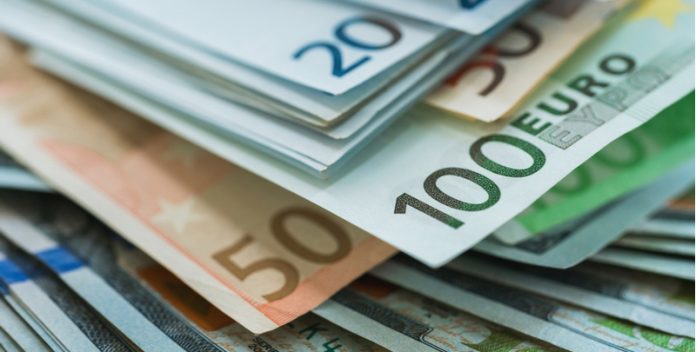An unexpected slowdown in UK economic growth in the first quarter, sent the pound diving 1.1% versus the euro. The pound euro exchange rate tumbled to a low of €1.1348, its lowest level in 5 weeks.
| What do these figures mean? |
|---|
When measuring the value of a pair of currencies, one set equals 1 unit and the other shows the current equivalent. As the market moves, the amount will vary from minute to minute. For example, it could be written: 1 GBP = 1.13990 EUR Here, £1 is equivalent to approximately €1.14. This specifically measures the pound’s worth against the euro. If the euro amount increases in this pairing, it’s positive for the pound. Or, if you were looking at it the other way around: 1 EUR = 0.87271 GBP In this example, €1 is equivalent to approximately £0.87. This measures the euro’s worth versus the British pound. If the sterling number gets larger, it’s good news for the euro. |
The pound has been hit by a barrage of weaker data over recent weeks. UK wages grew slower than analysts were expecting, inflation dropped closer towards the Bank of England’s 2% target level and UK retail sales had disappointed. This was then topped off on Friday by news that economic growth in Britain had almost stalled to a halt in the first quarter of this year. UK Gross Domestic Product (GDP) was just 0.1% quarter on quarter, well below the 0.3% forecast.
The weak data has killed off any remaining investor optimism of a Bank of England rate hike in May. The BoE will be concerned that the UK economy is not strong enough to weather an interest rate rise at the moment. As the possibility of an interest rate rise is pushed back, the value of the pound fell sharply.
| Why do raised interest rates boost a currency’s value? |
|---|
| Interest rates are key to understanding exchange rate movements. Those who have large sums of money to invest want the highest return on their investments. Higher interest rate environments tend to offer higher yields. So, if the interest rate or at least the interest rate expectation of a country is relatively higher compared to another, then it attracts more foreign capital investment. Large corporations and investors need local currency to invest. More local currency used then boosts the demand of that currency, pushing the value higher. |
This weeks has the potential to be a fairly quiet week for the pound, with the purchasing managers index appearing as the highlight of the UK economic calendar. These numbers could give a clearer picture to the health of the UK economy, without too much interference from weather conditions.
Euro Supported As German Unemployment Declines
Whilst demand for the pound was falling, support for the euro was increasing. Euro investors cheered strong employment figures from Germany. Unemployment continued to fall in Germany, the powerhouse of Europe. This was a big relief, given that market participants had been fearing that the German economy was starting to slow.
| Why does strong economic data boost a country’s currency? |
|---|
| Solid economic indicators point to a strong economy. Strong economies have strong currencies because institutions look to invest in countries where growth prospects are high. These institutions require local currency to invest in the country, thus increasing demand and pushing up the money’s worth. So, when a country or region has good economic news, the value of the currency tends to rise. |
The euro could find itself under pressure as attention will now switch to the Eurozone GDP reading which is due out on Wednesday. Analysts are expecting economic growth in the bloc to have slowed to 2.5% in the first quarter of this year, down from 2.7% at the end of last year. Should the figure come in lower, confirming fears of the economy losing momentum, the pound could sink versus the euro.
ades.
This article was initially published on TransferWise.com from the same author. The content at Currency Live is the sole opinion of the authors and in no way reflects the views of TransferWise Inc. |





